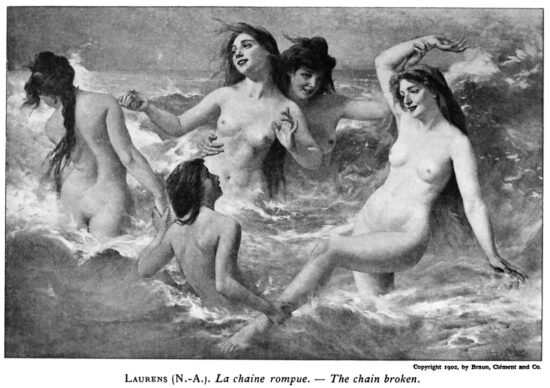Introduction
Alfred de Musset’s 1833 novel Gamiani, or Two Nights of Excess, is a provocative and contentious work that explores themes of passion, desire, and the complex dynamics of interpersonal relationships. This article offers an in-depth examination of the novel, encompassing its plot, characters, themes, writing style, setting, historical context, impact on literature, and reception.
Plot and Storyline
Gamiani revolves around the intense and illicit relationship between Countess Gamiani and Fanny, a young woman. The narrative unfolds as Fanny recounts her encounters with the Countess to a stranger. Through Fanny’s vivid narration, the reader is drawn into a world of sexual exploration and emotional turmoil.
The novel spans two nights, during which Fanny describes, in explicit detail, her passionate liaisons with the Countess. Their relationship transcends mere physical desire, delving into the depths of their psyches. The storyline explores themes of dominance, submission, and the complex interplay between pain and pleasure.
As the plot progresses, unexpected secrets are unveiled, forcing the characters to confront their own desires and vulnerabilities. The novel delves into the intricate psychology of human sexuality, challenging societal norms and conventions.
Characters
1. Countess Gamiani: The Countess is a seductive and enigmatic character, exuding allure and sexual prowess. Her dominant and manipulative nature captivates Fanny, pushing her boundaries as they explore their deepest desires together. Countess Gamiani represents a complex figure, embodying both power and vulnerability.
2. Fanny: Fanny, initially a young woman of innocence and curiosity, becomes entangled in the Countess’s web of passion. Throughout the story, Fanny undergoes a transformation, evolving from a submissive participant to an active and self-aware individual. Fanny’s character arc symbolizes the exploration of her own desires and the quest for self-identity.
Themes and Symbols
1. Sexuality and Desire: Gamiani delves into the intricate nuances of human sexuality, exploring themes of passion, desire, and sexual exploration. The novel challenges conventional boundaries surrounding sexual behavior, urging readers to question societal norms.
2. Power and Control: The novel examines power dynamics within relationships, particularly the themes of dominance and submission between the Countess and Fanny. It raises questions about the psychological motivations behind such dynamics and the role of power in sexual relationships.
3. Identity and Self-Discovery: The characters embark on a journey of self-discovery through their exploration of desires. The novel delves into the idea that embracing one’s own sexuality can lead to a deeper understanding of oneself and the complex facets of human nature.
Writing Style
Alfred de Musset’s writing style in Gamiani is characterized by its evocative language, vivid descriptions, and sensual imagery. The author employs a poetic and introspective tone, immersing the reader in the characters’ emotions and experiences. Musset’s use of explicit and provocative language enhances the novel’s sensuality and intensity.
Setting and Atmosphere
The novel’s setting is intentionally unnamed, contributing to its air of mystery and detachment from societal norms. The secluded location allows the characters to freely explore their desires without the constraints of conventional morality. The secrecy and gloom surrounding the characters’ encounters heighten the mood and create a seductive, forbidden atmosphere.
Historical, Social, or Political Context
Gamiani was written during the Romantic period, a time of significant social and cultural change. The novel challenges the rigid moral and social conventions of its era, presenting a narrative that fearlessly explores human desires and sexuality. It can be interpreted as a critique of societal restrictions and a call for individual freedom.
Impact and Reception
Upon its publication, Gamiani caused a significant stir due to its explicit content and taboo subject matter. It challenged societal norms and garnered both fascination and condemnation. Despite the initial controversy, the novel has gained recognition for its psychological depth and exploration of human sexuality. It has influenced subsequent works of erotic literature and continues to be studied for its artistic merits and social commentary.
How does Gamiani challenge societal norms in terms of human desires and sexuality?
Certainly! Here are some additional examples of how Gamiani challenges societal norms in terms of human desires and sexuality:
1. Exploration of Female Sexuality: Gamiani challenges the traditional portrayal of women as passive objects of desire. The novel presents Countess Gamiani as a sexually empowered and dominant character, defying societal expectations of female sexuality. Her uninhibited pursuit of pleasure and control over her own desires challenges the prevailing notion of women as submissive and passive participants in sexual relationships.
2. Blurring of Sexual Orientations: The novel explores fluidity in sexual orientations, challenging the rigid categorization of individuals into heterosexual or homosexual identities. Countess Gamiani’s relationships with both men and women highlight the complexity and diversity of human desires, transcending traditional notions of sexual orientation.
3. Subversion of Power Dynamics: Gamiani challenges traditional power dynamics within sexual relationships. The Countess assumes a dominant role, taking control and exerting power over Fanny. This subversion of gender roles and power dynamics disrupts societal expectations and norms surrounding gendered behavior and sexuality.
4. Open Discussion of Taboo Desires: The explicit and unapologetic depiction of taboo desires in Gamiani challenges societal taboos and restrictions. The novel explores themes such as sadomasochism, voyeurism, and exhibitionism, which were considered highly controversial and taboo during the time of its publication. By openly discussing and portraying these desires, Gamiani confronts societal norms and encourages readers to examine their own preconceived notions.
5. Emphasis on Consent and Agency: Gamiani places significant emphasis on consent and agency within sexual encounters. The characters engage in explicit discussions about their desires, boundaries, and limits, ensuring that all parties involved are willing participants. This emphasis on open communication and mutual consent challenges the idea that societal expectations or patriarchal norms should be the only factors influencing sexual relationships.
Overall, Gamiani challenges societal norms by presenting a narrative that explores the complexities of human desires and sexuality without judgment or restraint. The novel challenges and subverts societal expectations by exploring different sexual orientations, breaking taboo desires, and putting the focus on consent and agency. This leads to a more nuanced and inclusive understanding of human sexuality.
How did society react to the publication of Gamiani and its challenging themes?
Upon its publication, Gamiani caused a significant stir in society due to its explicit content and challenging themes. The novel’s portrayal of sexuality and exploration of taboo desires went against the prevailing moral and social norms of the time. Here are some reactions and responses to the publication of Gamiani:
1. Controversy and Condemnation: The explicit and provocative nature of Gamiani immediately drew condemnation from conservative factions of society. Many deemed the novel as scandalous, immoral, and obscene. Critics and moralists called for its suppression and banning, considering it a threat to public decency.
2. Legal Action: The publication of Gamiani also led to legal action in some cases. In France, where the novel was originally published, there were instances of prosecution and attempts to have the book banned. The explicit sexual content and challenging themes of Gamiani clashed with laws and regulations surrounding obscenity and decency.
3. Fascination and Curiosity: Despite the controversy and condemnation, Gamiani also piqued the curiosity of readers. A particular group of people in society who were interested in the taboo and sensational aspects of the book’s exploration of human desires and sexuality as well as its explicit content.
4. Impact on Erotica and Literature: Gamiani left a lasting impact on the genre of erotic literature. Its frank and unapologetic depiction of sexuality paved the way for future works that explored similar themes. The novel challenged societal boundaries and expanded the possibilities of what could be discussed and portrayed in literary works.
5. Literary Recognition: Over time, Gamiani gained recognition for its artistic merits and psychological depth. Scholars and literary critics began to analyze the novel as a significant work of literature that challenged societal norms and explored the complexities of human desires. It has been studied as an example of the Romantic period’s exploration of sexuality and a critique of societal restrictions.
Conclusion
Gamiani, or Two Nights of Excess, remains a captivating and controversial work that pushes the boundaries of erotic literature. Alfred de Musset’s exploration of desire, power, and identity challenges societal norms and invites readers to question their understanding of human sexuality. Through its engaging plot, complex characters, evocative writing style, and thought-provoking themes, Gamiani continues to resonate with readers, leaving a lasting impact on literature and the exploration of human desires.
Sources
Gamiani, or Two Nights of Excess by Alfred de Musset : All About Romance
Gamiani, or Two Passionate Nights – Wikisource, the free online library






